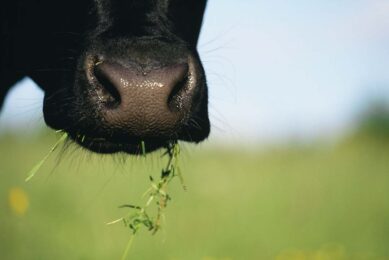IFCN Outlook: Milk demand grows faster than supply

After the last world milk price crisis in 2016, farm gate milk prices have stabilised during the last 2 years, reaching US$?35/100 kg ECM*.
This was concluded at the recent IFCN annual conference in Italy where the latest data and outlooks for the future dairy markets and milk price development were presented.
Factors impacting dairy demand 2019
Presenting its long-term and short-term outlooks, IFCN showed that milk demand growth until 2030 is estimated at 304 million tonnes ECM which represents 3 times the current US production. To activate the production needed for this growth, a world milk price of more than US$ 40/100 kg ECM is required. The dairy market situation in 2019 will be heavily impacted by the situations observed in 2018 like weather anomalies impacting feed production, dairy import demand and GDP growth per capita. A rapid slow-down of world milk supply growth reaching around 1.6 % in August versus January 3.1 % has supported the price stabilisation of US$ 35/100 kg ECM. Key driver for the supply reaction was deterioration of dairy farm economics situation and sever regional weather anomalies.
Big data and supply chains
The conference also touched on the they way big data will change dairy farming and how the supply chain of the future should look like. Big data in agriculture describes large sets of data that are generated on farms. Big data is becoming more important due to increasing use of emerging technologies that create data, such as sensors and cameras. However, simply storing the data provides little value. As seen in different conference presentations data becomes advantageous when it is analysed computationally to reveal patterns, trends, and associations, especially relating to behaviour and interactions. All the data, combined with advanced data platforms, can create new value for cows, farmers, processors and consumers. Insights that can enhance animal productivity and comfort while also driving incremental value and transparency across the dairy supply chain were discussed. “We are entering a new era, where technology application, precision and cost are getting to a situation where multiple sources of information and insights will be integrated, correlated and analysed to solve complex problems in a timely manner”, explains Ricardo Daura, Global Product Line Director for Digital Insights of Cargill. Torsten Hemme, Managing Director of IFCN says: “The dairy demand will grow faster than the supply. IT solutions for big data will serve the dairy chain in order to identify the growth potentials of this sector.
*ECM = Energy Corrected Milk: 4.0% fat, 3.3% protein
Join 13,000+ subscribers
Subscribe to our newsletter to stay updated about all the need-to-know content in the dairy sector, two times a week.










